
Meghan Rosen is a senior writer who reports on the life sciences for Science News. She earned a Ph.D. in biochemistry and molecular biology with an emphasis in biotechnology from the University of California, Davis. Her dissertation work involved studying mutated proteins in liver and kidney cancer. She later graduated from the science communication program at UC Santa Cruz. Prior to joining Science News in 2022, she was a media relations manager at the Howard Hughes Medical Institute. Her work has appeared in Wired, Science, and The Washington Post, among other outlets. Once for McSweeney’s, she wrote about her kids’ habit of handing her trash, a story that still makes her (and them) laugh.

Trustworthy journalism comes at a price.
Scientists and journalists share a core belief in questioning, observing and verifying to reach the truth. Science News reports on crucial research and discovery across science disciplines. We need your financial support to make it happen – every contribution makes a difference.
All Stories by Meghan Rosen
-
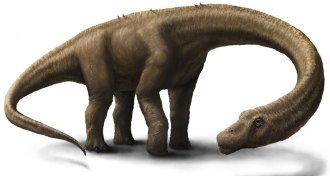 Paleontology
PaleontologyWorld’s largest dinosaur discovered
A plant-eating dinosaur named Dreadnoughtus schrani has claimed the record for most massive land animal discovered to date.
-
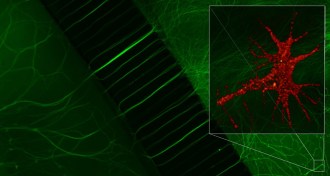 Health & Medicine
Health & MedicineRabies races up nerve cells
By hijacking a transporter protein and hitting the gas, the disease-causing rabies virus races up long nerve cells that stretch through the body, a new study finds.
-
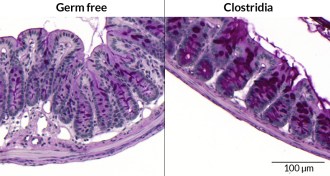 Life
LifeGut bacteria may prevent food allergies
In mice, gut bacteria blocked food from seeping out of the intestines and triggering an immune reaction in the bloodstream.
-
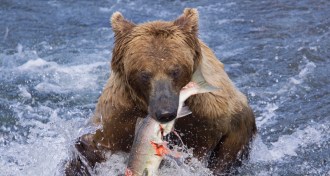 Life
LifeGrizzly bears master healthy obesity
Tuned insulin signals explain how grizzly bears can fatten up for hibernation in the winter without developing diabetes.
-
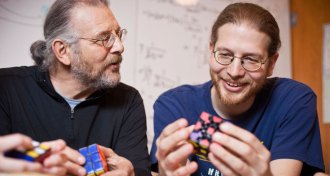 Math
MathFather-son mathematicians fold math into fonts
MIT’s Erik and Martin Demaine create puzzle typefaces to test new ideas.
-
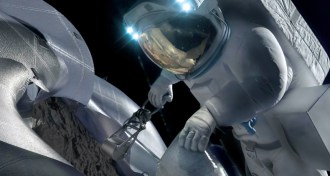 Planetary Science
Planetary ScienceNASA bets on asteroid mission as best path to Mars
NASA wants to bag an asteroid using robotic arms or an enormous sack and place the rock in the moon’s orbit for study. This may keep astronauts working but not, as NASA claims, get them Mars-ready.
-
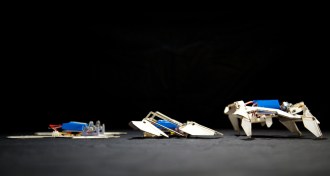 Tech
TechRobots start flat, then pop into shape and crawl
The machines use heated hinges to transform into shape and crawl around.
-
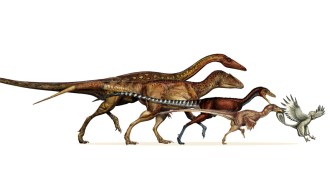 Paleontology
PaleontologyDinosaurs shrank continually into birds
Steady miniaturization and rapidly changing skeletons transformed massive animals into today’s fliers.
-
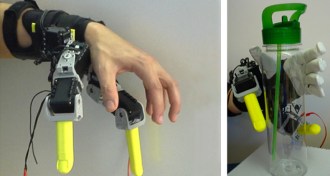 Tech
TechWith two robotic fingers, humans get a helping hand
Mechanical fingers grasp like the real thing.
-
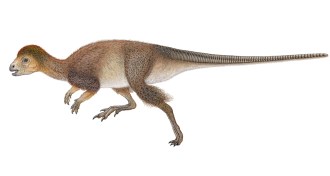 Paleontology
PaleontologyFeathered dinosaurs may have been the rule, not the exception
Newly discovered fossil suggests feathers may have been common among all dinosaur species.
-
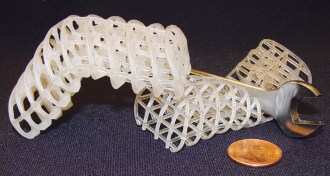 Tech
TechWax-coated plastic morphs between soft and stiff
Heat-controlled materials could serve as skeleton for shape-shifting robots.
-
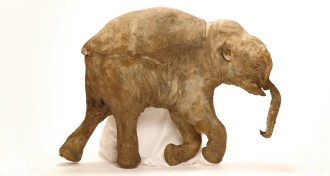 Paleontology
PaleontologyBaby mammoths died traumatic deaths
CT scans show that two young mammoths probably suffocated.